Ulaanbaatar has more A’s
The Sim City 2000 theme rang out loud and clear, bright and early. We were somewhere outside of Ulaanbaatar, on a train bound from Ulan Ude into Mongolian capital. The Dutch women that we’d been sharing the compartment with had already woken up and had enough time to brew their first cup of coffee. They drank a strange space age kind of Nescafe that foamed and bubbled, whipping itself right before your eyes as you mixed it with hot water.
We had just time enough to mix a couple cups of our own ho hum run of the mill instant coffee which we mixed with a little Siberian 7.5% high octane coffee mixing milk. We barely had enough time to pour two of those cups back before the train was hissing and squeaking it’s arrival at the station.
The Ulaanbaatar station was very impressive, blocky and imposing. It was a cool morning outside and still felt kind of like Siberia. As we were strapping things down, Buryat looking women who spoke perfect English were coming up to us and offering us guesthouses for 4 dollars a night per person. It wasn’t Siberia, but seemed at least that hotels would be cheap here. What a strange phenomenon, this pining for Siberia. We pulled on the leather jackets and hopped on the bikes.
Scott had lost his lock again. This one had been a really great one too, purchased in Turkey right before we left, but regardless we were in the market for a replacement, so we scanned the streets for bike shops as we rode. This did not look like a city that purchased many bikes, however… at least not bikes for the people.
It was touristy. The most touristy place we’d been in months, I’d say, since perhaps Istanbul. The city was full of Irish pubs, night clubs, tour agencies, and all the other less savory businesses that cater to vagrant backpacker riff raff. Many of the signs included English as well.  How did we all of a sudden arrive from Siberia into Phuket?
The Mongolians use the Cyrillic alphabet (more or less) so I was stuck in a loop of trying to access the Russian sector of my memory banks as we rode by signs and advertisements, but continually coming up empty handed, the words being all in Mongolian. In fact, there was a shockingly small amount of Russian or Chinese on the signs here. For a country wedged between two great powers, both of which spoke not much English, it seemed interesting to me that Mongolia was choosing English as its second language of choice.
It was early, and the streets of Ulaanbaatar were empty, giving us the very incorrect indication that this was a reasonably relaxed city to wheel in. Feeling none to pressed for time, we began to meander through heart of the city, looking for hotels, guest houses, places to eat breakfast, and the like.
We rode by some Australian people, who I feel I can now safely say were Mongol Ralliers, having recently achieved their goal of driving from Europe to Ulaanbaatar. They looked like they’d been out all night, and yelled out to us as we drove by “So you think you can cycle in this city, eh? Have you seen the traffic?â€
“What traffic?†we called back gesturing to the empty road around us.
We’d find out soon enough, though, exactly what they were talking about. Just give the maniacs time to wake up…
Speaking of maniacs and breakfast time, it was still having not found a hotel that we pulled into a little local eatery to eat a little breakfast and drink a little more coffee. All they had in the way of coffee, however, was this “American Flavour CoffeeKing†The stuff was really bad, like an old a melted coffee-flavored lozenge blended with Elmer’s glue.
The mug that came with it on the other hand…

We could not read the menu at all, though my mind kept trying to interpret it as Russian, so we just ordered at random. The food was interesting, like a cross between Chinese food and Russian food, without quite the stylistic refinement of either.
We got a very mayonnaisey carrot salad, a large pickled cabbage salad; and a hamburger patty with a fried egg on top, doused in what might have been termed Pace brand mild enchilada sauce, accompanied by two squat gers of rice each sporting a little areola of ketchup.
The women who ran they place were very friendly, though, and while they spoke no English, Russian, or Chinese, they were very kind to us in allowing us to plug our laptops in and to investigate the maps in the Lonely Planet.
So it was with a slightly better idea of where we were that we headed back out on the cycles. This by no means meant that we were out of the woods yet, however, for finding the hotel that we’d selected turned out to be another Irkutsk style venture into the confusing depths of a huge soviet housing block.
Inside the block, we were able to find first an old man who spoke Russian and was able to help get us to the right sub-sector of the gargantuan apartment block complex, then a young boy who was more than happy to lead us right to the door of the French youth hostel that we’d been interested in. They were unfortunately, however, booked solid for that night.
So we followed a Mongolian girl who spoke French but no English across that particular section of the soviet housing block over to the Sunny Motel, which turned out to be quite affordable and very cheap. The husband and wife who ran the place were also stellar folks, learning English, Chinese and Russian, and running a spick and span little operation.
We dropped off our things there, and climbed back on the cycles to head out to the train station. We needed to get from Ulaanbaatar over to Inner Mongolian China sometime in the next week and a half, but we had no idea exactly how often, and where or when the trains ran.
Now free of our packs, wheeling felt good, so nimble and speedy were we. We made short work of the trip to the giant yellow MTZ station.
Inside we found a bewildering number of options, including international trains to Beijing and cities in Inner Mongolia on a bi-weekly basis, and domestic trains much more often which take a traveler to just a few kilometers shy of the Chinese border.
Still not knowing exactly what our plans here in Mongolia would be, but happy to find that we had many options, we headed back out to unlock the cycles, stopping as we did so first at a SIM card kiosk and then at a very cheap Korean powdered coffee machine, which had been retrofitted to take Mongolian Tugrug. The problem with the retrofitting operation was that the machine was unable to give change, and so cheap was the coffee that our smallest bill was enough for 6 cups. So we made friends and just bought them coffee with the excess change.
Then it was time to do a little wheeling. The traffic was getting very thick as we pulled back onto the roads, and we began to learn that the drivers here are none too perceptive. Ulaanbaatar is filled with giant and expensive SUVs, in part because they are useful during the long and savage Mongolian winters, and in part because of the recent boom in foreign direct investment and development centered on the exploitation of Mongolian mineral resources.

Regardless of petty excuses, this was a highly technical wheeling city. A rider in Ulaanbaatar must be vigilant against maniac drivers, assuming always that the people around you will be breaking the rules, never signaling their intent, and generally ignoring not just lanes, but the border between road and sidewalk as well.
Ulaanbaatar is also full of gers too, the traditional Mongolian nomadic dwelling. Gers are a pretty ingenious structure, resilient against the weather, and adjustable to increase ventilation, store heat, and the like. It might come as no surprise, then, that amidst the blocky soviet structures and new shiny metal and glass buildings of Ulaanbaatar, there are also plenty of gers just set up on open bits of pavement. As far as we could tell, there were no rules about parking, and I would assume this extends to parking of houses as well.
Suddenly, as it always seems to go, we realized we were starving. And so we dropped into a very high concept 1960s plastic shape themed restaurant, which turned out to serve traditional Mongolian food.
We ordered blind again, being unable to interpret the menu, but more or less struck gold with a large plate of red cabbage salad, and a sizzling meat and egg scramble. We also got a dumpling soup which came with a certain kind of white milky looking pork broth, which I’d only up until that point found at Korean restaurants.
We headed north then, past Freedom Night Club (American Soft Power get’s er done), and by a very intriguing Chinese business hotel. We decided to pull an uber lichht and send Scott in to shuo a little and see what he could see. He came out looking very excited. “The place is great. It’s definitely a Chinese business hotel, it’s about 20 bucks a night, it has in-room Ethernet, and there’s a dank looking restaurant downstairs.â€
“Excellent.†I replied.
“They’re booked solid right now, but I’ve made some friends in there, and they’ll call us tomorrow.â€
Feeling great about that option, we hit the road again, wheeling northwards and taking a right turn, veering slightly down hill now and out into the countryside. We spotted a large grocery store, and locked the bikes outside to go in and buy water and generally gawk at the products.
Here we saw the return of the Kickapoo joy juice that had been such a smash hit with David Miller in Borneo. Meat was moving quickly here, and the shoppers were invited to pick and choose from unpackaged piles of it that just sat in the bottom of the cooling unit.

Anything thing which we could not help but notice inside this and all the other Mongolian grocery stores that were to follow was that absolutely everything here that could be was branded with the name of Chengis Khan. There was Chengis Khan Vodka, energy drinks, crackers, sodas, beer snacks, chewing gum, cigarettes and lord knows what else.
From the grocery store, we headed on further into the countryside, and taking a left to wheel towards the Ger district, the part of town where there are many more gers than permanent structures, and where a family might move for anywhere from 2 months to 5 years to spend some time participating in the largest and only truly developed Urban Economy in Mongolia.
The air in Ulaanbaatar is some of the worst in the world, especially in winter. This happens for two reasons: one is that the local wind paterns and the proximity of certain elevation changes encourage air to local air to hang around the city. The other is that during the winter the poor in the ger district burn lots of coal and dung to heat their homes, while the impoverished burn garbage (we’re talking plastic bags to batteries). All that smoke gets trapped in the same cycle of bad air caused by reason number one, and makes for a truly heinous lungful.
Homes in the ger district are separated out by wooden fences and cordoned off into treeless yards. We rode along by the central giant trench, which seemed to act as a collecting spot for all the refuse of the community, and took it up into the hills, the heart of the ger district.
The people we encountered were generally smiling and seemed happy to see us visiting their neighborhood, which I am sure is not on the normal tourist’s itinerary for Ulaanbaatar. We were riding over the loose gravel roads, cresting the top of the hill when all of a sudden three new riders joined out pack.
They were boys, locals of the ger distric, and out wheeling presumably after school. They stuck with us for the rest our wheel through ger district, constantly challenging us to ride harder, or take turns faster. I was beginning to understand that the wild driving of the people in this city might stem from a more basic biological need for speed…
Back on the main road, we pushed it hard back into town. We were fighting a terrible headwind, and so the going was tough, with cars whipping by us, and the subsequent clouds of dry dirt they threw up ending up cought in the teeth. I would hold my breath as I went threw a cloud of dust, pedaling hard and thinking the heavens for the Maui Jims.
That evening, as we attempted to write, lying in our beds at the hotel, a savage domestic depute broke out. Two people, man and woman, in the room next to us were really having an intense argument. The walls were very thin, so we were the sorry recipients of the entire ordeal. Soon the argument escalated to screaming. Then we began to hear stomping and slamming of doors, then bashing noises and more screaming. Soon, what was almost certainly now a physical fight burst out into the hallway, and we heard a human body smash against the wall.
All the while, Scott and I were in the room, listening to Tom Waits’ album “Alice†wondering what we should do.
Throughout the next few hours, the battle nextdoor would simmer down then heat up again, with more banging, screaming, slamming and similarly violent noises. The Sunny Hotel was nice and all, but we needed to get a new place first thing the next morning.


















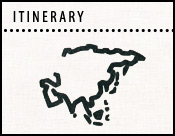
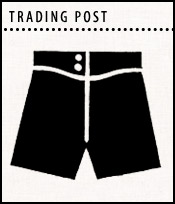
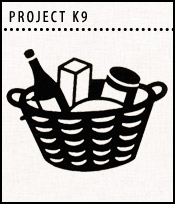
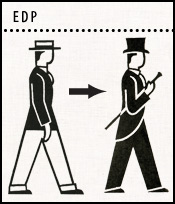
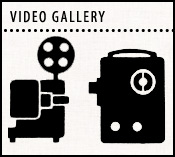
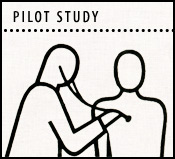
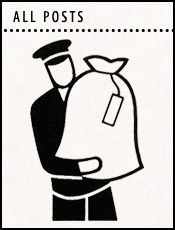





Comments
“areolas of ketchup”